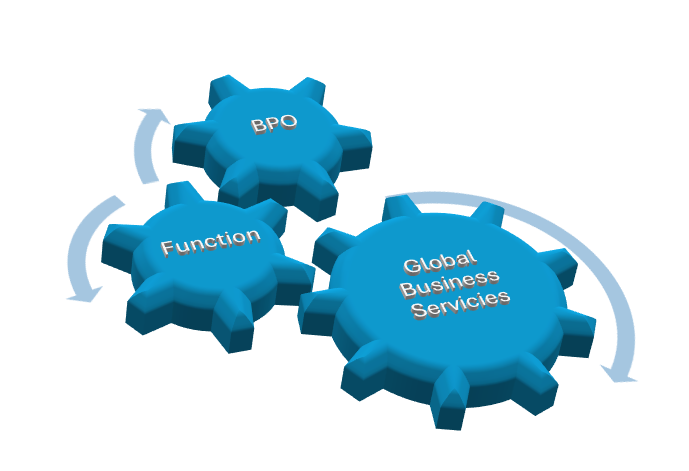Global Business Services Value Proposition: Governing Business Process Outsourcing Relationships
Introduction: the Importance of Business Process Outsourcing Service Governance
Business Process Outsourcing (BPO) has become a strategic tool for organizations seeking to enhance operational efficiency, reduce costs, and focus on core competencies. However, the success of BPO sourcing model largely depends on effective governance. The governance of BPO services is crucial for creating strategic value, ensuring process effectiveness and efficiency, and enhancing the operating model by maintaining ownership and accountability within the relevant corporate functions.
The BPO Governance Operating Model
The BPO Governance Operating Model serves as a blueprint for designing and implementing effective and efficient BPO governance. It delineates the structure, roles, and responsibilities required to manage BPO relationships successfully, ensuring alignment with organizational goals and compliance with internal and external regulations. Figure 1 represents the BPO Governance Operating Model.
Figure 1 The BPO Governance Operating Model
Key Responsibilities of Global Business Services in Governing Business Process Outsourcing Relationships
1. Establish Effective Governance Framework:
- Develop a robust governance structure that aligns with both organizational objectives and BPO capabilities.
- Ensure compliance with internal policies and external regulations.
- Support continuous optimization and identification of improvement opportunities.
2. Performance Management:
- Implement performance tracking and reporting mechanisms to monitor BPO effectiveness.
- Facilitate regular governance meetings with functional owners across departments such as Accounting, Tax, HR, IT and Legal.
- Promote a culture of continuous improvement by linking performance metrics to enhancement initiatives.
3. Change Management:
- Document and manage change requests from both BPO providers and internal functional owners.
- Ensure timely and budget-compliant implementation of all changes.
- Maintain a structured approach to change management to minimize disruptions and optimize outcomes.
4. Internal Control and Risk Management:
- Ensure that required internal controls are in place and effectively managed within the scope of BPO services.
- Implement comprehensive risk management strategies to identify, assess, and mitigate risks associated with BPO operations.
- Regularly review and update risk management frameworks to adapt to evolving business environments.
5. Escalation Management:
- Establish a clear and efficient escalation path for addressing issues and resolving conflicts.
- Conduct root-cause analysis for escalated issues to prevent recurrence.
- Track and report the status of escalations and resolutions to maintain transparency and accountability.
6. Data Management:
- Maintain accurate and accessible archives of all documentation related to BPO service governance.
- Preserve internal control evidence to support audit and compliance requirements.
- Coordinate process improvements by identifying areas for enhancement and implementing best practices.
Strategies and Methods of Global Business Services for Effective BPO Services Governance
1. Performance Management:
- Utilize key performance indicators (KPIs) to measure BPO performance against predefined benchmarks.
- Implement performance dashboards for real-time monitoring and reporting.
- Facilitate cross-functional governance meetings to discuss performance, address issues, and share insights.
2. Change Management:
- Develop a change management framework that includes standardized processes for submitting, reviewing, and approving change requests.
- Utilize project management tools to track the progress and impact of changes.
- Communicate changes effectively to all stakeholders to ensure smooth transitions.
3. Internal Control and Risk Management:
- Conduct regular internal audits to assess the effectiveness of controls within the BPO governance framework.
- Implement risk assessment tools to identify potential risks and develop mitigation strategies.
- Engage in continuous risk monitoring and update risk management plans as necessary.
4. Escalation Management:
- Design an escalation matrix that outlines the hierarchy and procedures for issue escalation.
- Implement a centralized issue tracking system to monitor the status of escalations and resolutions.
- Conduct periodic reviews of the escalation process to identify areas for improvement.
5. Data Management:
- Implement robust data management systems to ensure the security, integrity, and accessibility of governance-related documentation.
- Utilize data analytics to identify trends and insights that can inform governance decisions.
- Promote a culture of data-driven decision-making to enhance the effectiveness of BPO governance.
Conclusion
Effective governance of BPO services is a multifaceted process that requires a strategic approach, encompassing performance management, change management, internal control, risk management, escalation management, and data management. By consolidating governance activities to the scope of Global Business Services organization functional owners can navigate the complexities of BPO relationships, ensuring that their functions remain agile, resilient, and capable of achieving sustained success in a dynamic business environment. This comprehensive BPO Governance Operating Model not only mitigates risks but also fosters innovation, driving continuous improvement and delivering long-term value.





